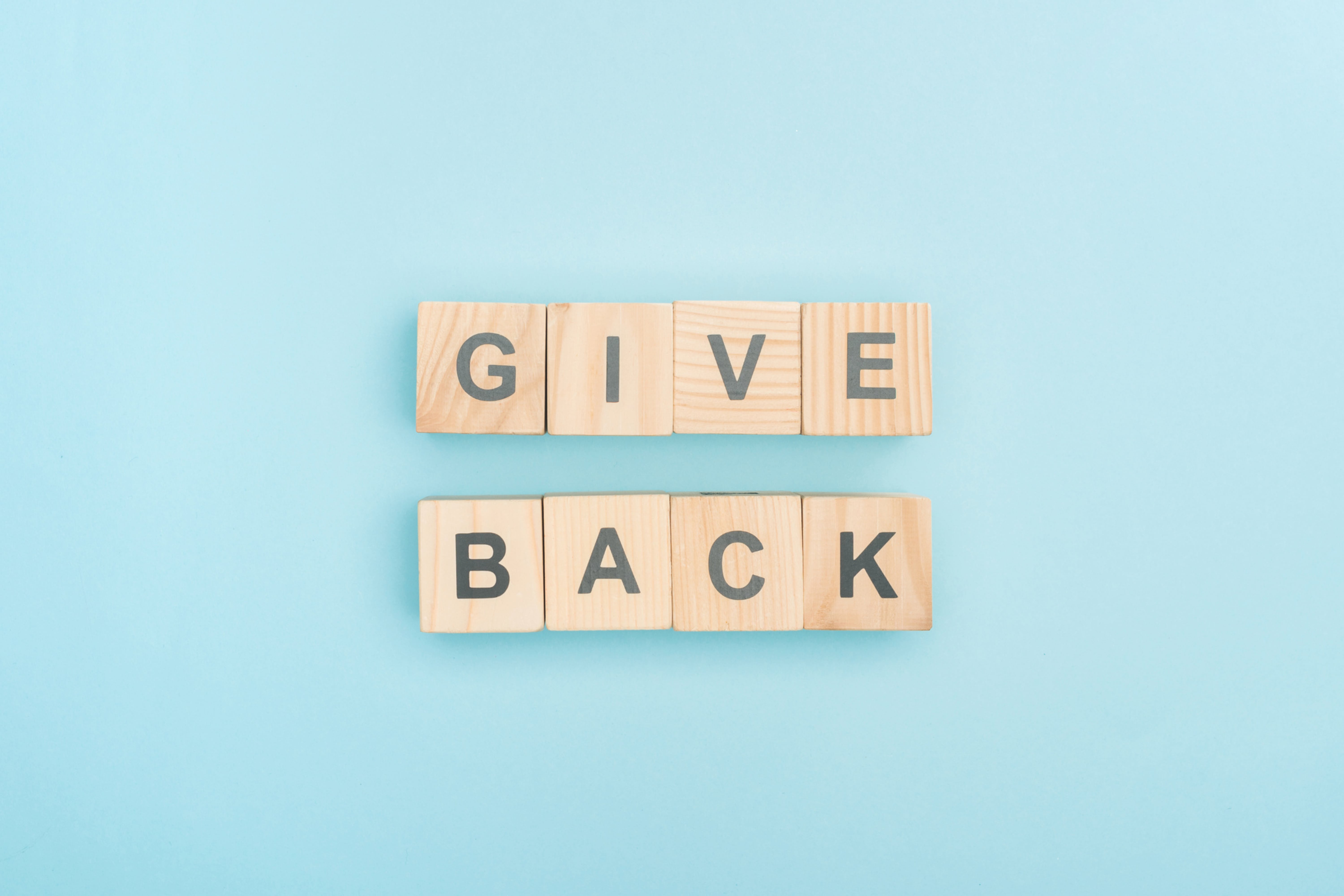Emotional ManipulationRelationships can be a rollercoaster of emotions, filled with highs, lows, and unexpected twists. Breakups, in particular, can leave individuals with many unanswered questions, especially when the relationship ends on ambiguous terms. One intriguing aspect that captures many people’s attention is when an ex-partner returns your belongings.
What’s the underlying message, and how should you interpret this act? This article aims to explore this phenomenon, dissecting the emotions, psychology, and behaviors involved, backed by research.
Through this exploration, we will take a look at the different ways people approach the situation of returning items to an ex-partner, what it might signify, and how to deal with the emotions attached. Whether you’re going through this situation or simply intrigued, you might find the following insights eye-opening and valuable.
The Psychology Behind Returning Items

Why Do People Return Items?
Returning belongings can be more than just a simple act. It can be a loaded message or an attempt to close a chapter. Here’s a breakdown of some psychological reasons:
- Closure: Giving back personal belongings can signify a need for closure and to mark the relationship’s definitive end.
- Control: Sometimes, it may symbolize control over one’s feelings and the situation.
- Communication: It can also serve as a form of non-verbal communication, perhaps a final message or a way to provoke a response.
A Comparison Between Men and Women
Men and women may interpret or act on this differently. A research study pointed out gender differences in emotional responses and behaviors:
How to Interpret the Return of Items?
Understanding why an ex-partner returned your belongings requires considering both your relationship’s context and your partner’s personality. It’s often a multifaceted issue that may require introspection and patience to decode.
How to React When Your Ex Returns Your Stuff?
What Your Response Tells About You?
Your reaction to having your belongings returned can provide insights into your emotional state and expectations. Here are a few typical reactions:
- Neutral: Accepting items without much emotion, focusing on the practical aspect.
- Upset: Feeling hurt or frustrated, interpreting it as a definitive end.
- Curious: Wanting to explore the underlying reason, perhaps hopeful for reconciliation.
When to Seek Professional Help?
When dealing with complex emotions, professional assistance can be crucial. Therapists can help you navigate feelings and make sense of the situation, particularly if it leads to anxiety or depression.
Tips for Handling the Situation Gracefully
- Stay Calm: Try to remain level-headed, even if emotions run high.
- Communicate If Needed: If you feel the need, you might want to talk to your ex-partner about their intentions.
- Reflect and Learn: Use the situation as an opportunity for self-reflection and growth.
The Emotional Impact of Returned Belongings

Digging into Emotional Responses
The act of returning belongings may trigger a plethora of emotions, from relief to despair. Emotions play a crucial role in shaping our behavior and decision-making, particularly in relationships. They can significantly influence our overall well-being.
Understanding Emotional Reactions
Various emotional reactions to having your belongings returned may include:
- Relief: A sense of closure or ending a chapter.
- Sadness: A reminder of loss and the end of the relationship.
- Anger: Feeling provoked or manipulated by the act.
- Hope: Interpreting it as a sign of wanting to reconnect.
Research on emotional intelligence highlights the importance of understanding and managing emotions.
Emotional Strategies
Handling these emotions requires strategic thinking. Here are some strategies:
- Seek Support: Friends, family, or professionals can provide guidance.
- Reflect and Journal: Writing about your feelings can be therapeutic.
- Mindfulness and Meditation: Techniques to keep yourself centered and balanced.
The Societal Perspective – When Everyone’s Watching
Social Media’s Role
In the age of social media, the private act of returning belongings can become public. This amplifies the situation and may create additional stress or embarrassment.
Impact on Mutual Friends
How your mutual friends react or become involved in the process can add another layer of complexity. The social dynamics may shift, and friendships can be tested.
Privacy and Boundaries
Maintaining privacy and setting clear boundaries is essential in handling the situation with dignity. Here’s how:
- Communicate Clearly: If needed, discuss the situation privately with your ex-partner.
- Set Boundaries with Friends: Make your preferences known to those around you.
- Limit Social Media Exposure: Consider what you share online.
Practical Scenarios and How to Handle Them

Introduction to Practical Scenarios
Returning belongings after a breakup can manifest in many ways. Each scenario may require a different approach and understanding. Here, we’ll explore some common situations, backed by relational research, to equip you with practical tools.
Scenario 1: A Friendly Return
This situation involves a friendly and amicable exchange where both parties wish each other well.
- How to Handle: Maintain respect, express gratitude, and move on with grace.
- Research Insight: Studies show that amicable breakups often lead to healthier post-relationship adjustments.
Scenario 2: An Unexpected Package
Here, belongings are returned without warning or communication, leading to confusion.
- How to Handle: Reflect on the context, and if needed, seek clarification.
- Research Insight: Unexpected behavior may trigger anxiety; professional help can be beneficial.
Scenario 3: A Malicious Act
In this scenario, the return of items is done with ill intent, such as to provoke or manipulate.
- How to Handle: Stay composed, seek support, and establish clear boundaries.
- Research Insight: Understanding manipulation techniques can empower you to respond appropriately.
Gifts From Your Ex. To Return Or Not?
Gifts from a former partner often carry emotional significance. They can be reminders of beautiful memories or painful triggers of what has ended. After a breakup, what to do with those gifts can become a perplexing question. Below, we’ll explore different scenarios in which keeping or returning these gifts might be appropriate and provide practical tips on how to handle the situation.
Keeping Gifts from Your Ex: When is it Acceptable?
1. Sentimental Value: Gifts that hold a deep emotional or sentimental attachment can be worth keeping. It might be a token of a cherished memory that you still honor, even after the relationship has ended.
2. Functional Items: Gifts that are part of your daily life, like a kitchen appliance or a piece of furniture, might not necessarily need to be returned. They’ve become part of your routine and can be viewed more practically.
3. Gifts from Special Occasions: Gifts received for special milestones like birthdays, graduations, or achievements can be considered your possessions, as they were given to celebrate personal occasions.
4. Children Involved: If there are children in the relationship, keeping gifts that involve family memories or children’s use could be the right decision.
5. Mutual Understanding: Sometimes, both parties agree that gifts should remain with the recipient, considering them a token of the time spent together.
6. Legal Considerations: In some jurisdictions, gifts may legally become the property of the recipient once given unless there was a specific agreement to the contrary.
Returning Gifts to Your Ex: When Might It Be Better?
1. Expensive or Valuable Items: If the gifts are particularly expensive or valuable, returning them might be seen as an act of goodwill or a necessary step, especially if the giver requests them back.
2. Emotional Healing: Returning gifts may provide a sense of closure and emotional healing. If the items remind you of painful memories, letting go of them can be therapeutic.
3. Unwanted or Unused Gifts: If you don’t value or use the gifts, returning them might be a logical decision.
4. Explicit Requests: If your ex explicitly asks for the items back, and it’s reasonable, it might be best to comply.
5. Engagement or Promise Rings: These often have significant emotional and financial value. Returning them might be the proper etiquette, depending on cultural and personal beliefs.
Tips on How to Return Gifts Politely
Assess the Situation: Consider why you’re returning the gifts and if it’s appropriate to do so.
- Communicate Clearly: If you decide to return gifts, communicate with your ex-partner about your decision and why you’re doing it. Make sure both parties are on the same page.
- Choose the Right Time and Place: Select a neutral and convenient time and place to avoid unnecessary drama or discomfort.
- Be Respectful: Package the items thoughtfully, especially if they are fragile or valuable.
- Avoid Emotional Manipulation: Ensure that the act of returning gifts isn’t used to provoke or manipulate feelings.
- Consider Using a Mediator: If direct interaction is challenging, consider using a trusted friend or family member to facilitate the return.
- Write a Note If Needed: If the situation requires further explanation or if you want to maintain a friendly tone, a polite note accompanying the gifts might be appropriate.
- Legally Document If Necessary: In cases involving high-value or contested items, documenting the return might be wise.

Moving Forward – Building a Positive Future
Embracing a New Beginning
Once the belongings are returned and the situation is processed, it’s time to embrace a new chapter. Moving on after a breakup requires resilience, self-reflection, and growth.
Creating Positive Habits
Post-breakup, cultivating positive habits can lead to self-discovery and a renewed sense of purpose.
- Exercise Regularly: Physical health supports emotional well-being.
- Build Supportive Networks: Social support is vital for emotional recovery.
- Pursue New Interests: Engaging in hobbies can foster a sense of accomplishment.
Seeking Opportunities for Growth
A breakup, although painful, can be a catalyst for personal development. Research on resilience and growth shows that adversities can lead to profound transformations.
The Broader Landscape – Relationships in Modern Times

Relationships in the Digital Age
In our interconnected world, relationships, breakups, and everything in between are increasingly influenced by technology and digital platforms.
Navigating Online Relationships
Online interactions create new dynamics:
- Digital Footprints: Shared photos, messages, and social media connections.
- Online Dating: New opportunities and challenges in finding love.
- Cyber Communication: How online communication impacts relationships.
The Future of Relationships
In an ever-changing landscape, relationships continue to evolve. Embracing change, understanding emotions, and adapting to new dynamics are essential skills for thriving in modern love and friendships.
Conclusion
Summarizing the Journey
The journey from discovering that your ex has returned your belongings to understanding, interpreting, and dealing with the situation is complex and multifaceted. It’s a topic that resonates with many and can provide insights into human behavior, emotions, and relationships.
What We’ve Learned?
- Psychological Insights: The act reveals much about both parties’ psychological states.
- Emotional Impact: Varied emotions can arise, requiring careful handling.
- Gender Differences: Men and women may approach the situation differently.
- Societal Influences: Culture and social media add complexity.
- Strategies and Tips: Practical ways to handle the situation with grace.
A Universal Experience
While the act of returning belongings after a breakup may seem trivial, it’s a subject that touches on universal themes of love, loss, closure, and personal growth. By delving into this area, we’ve opened the door to deeper understanding and empathy.
Final Words
“What does it mean when your ex returns your stuff?” It’s a question with many answers, each as unique and intricate as the relationship it stems from. Whether you’ve found solace, inspiration, or curiosity in these pages, may you carry forward with greater wisdom and compassion in your relationships.
Understanding is the key to growth, and in the complexity of human connections, even a simple act can reveal profound truths.
[wp-faq-schema title=”Frequently Asked Questions”]
